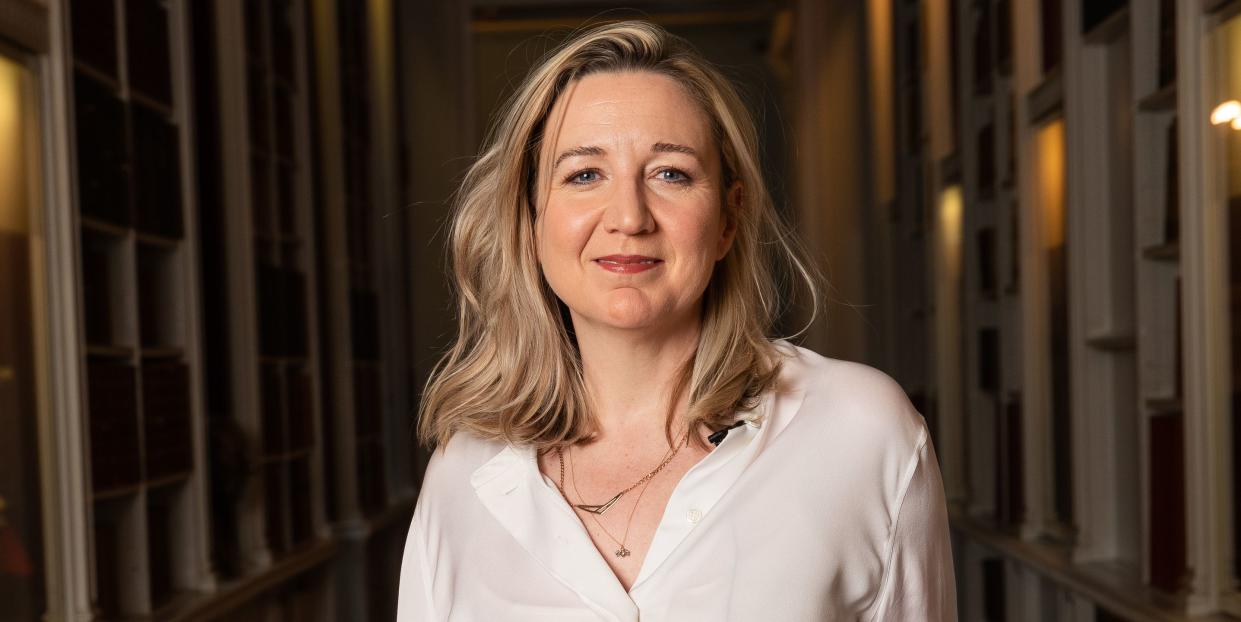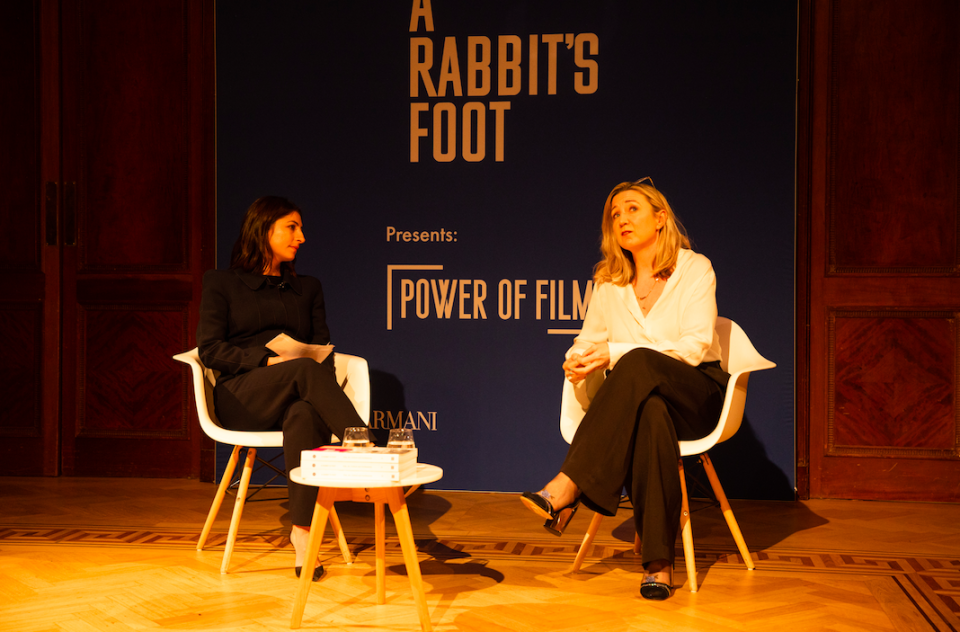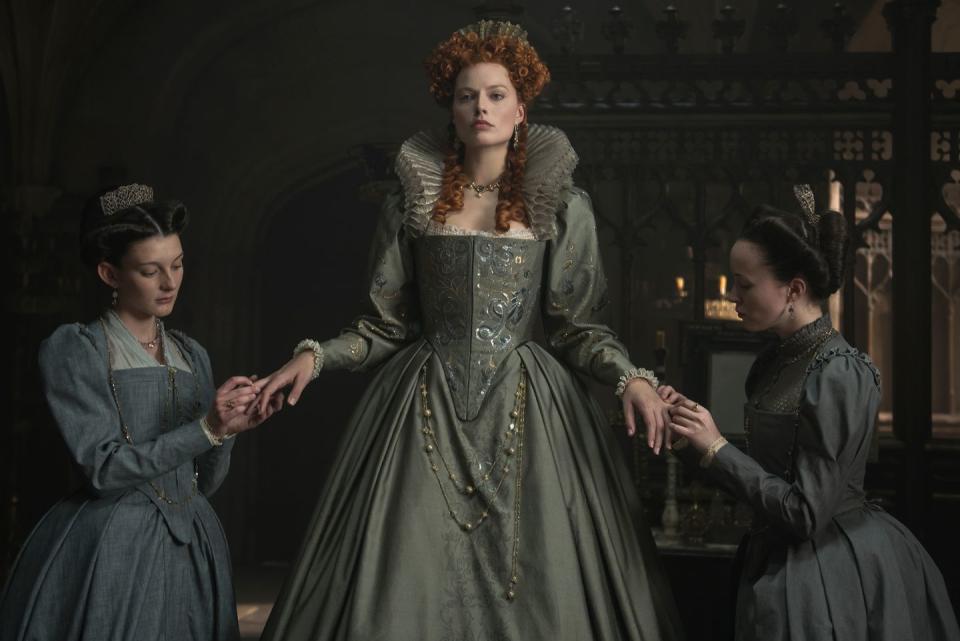Josie Rourke on changing the face of theatre and fighting to cast Margot Robbie

On Wednesday night, at The Royal Institution in Mayfair, award-winning theatre and film director Josie Rourke took to the stage with writer Sara-Ella Ozbeck to discuss the lessons learnt from her illustrious career.
The women were in conversation as part of a two-day event celebrating the third issue of Charles Finch's cultural publication A Rabbit's Foot – a symposium on the 'Power of Film' – sponsored by Giorgio Armani. Following many talks, including those by filmmakers Asif Kapadia and Edgar Wright, Ozbeck thanked the audience for "sticking around for the women's segment".
It rather unintentionally segued directly into a discussion about Rourke herself, whose current play Lemons, Lemons, Lemons, Lemons, Lemons is playing at the Harold Pinter Theatre, and her 20-plus year career as, not only a hugely successful director, but a hugely successful female director, in a world that is still – though ever-changing – dominated by men. She was the first woman to direct the famous Footlights pantomime at Cambridge University (where she was, incidentally, the very first person from her Manchester school to study). In 2011, after several years as artistic director of the Bush Theatre, she became the first woman to hold the same role at the Donmar Warehouse, and the first female theatre director to be appointed as artistic director of a major London theatre. She admits there were innumerable challenges along the way, not least her role as an accidental trailblazer for women in the industry, but says she was never really as aware of her gender as she was when she took her talents to Hollywood.

"I found this particularly when I moved into film," she said, of her shift in 2018 to the big screen, with her ambitious and thoughtful Mary Queen of Scots, starring Saiorse Ronan and Margot Robbie. "I mean, my first film and it was this insane budget and such a huge scale – talk about imposter syndrome! But one thing I noticed immediately, was that it was very white, and it was very male."
Rourke relayed her feelings that, while there is still much to do to improve representation across the board, she had always found colourblind casting to be more readily accepted – if not the norm – in theatre. This was not the case on her first film set. She recalls the moment one of her actors, Adrian Lester, walked on set. "I realised he was the only Black man there," she remembers. "Representation is as important behind the camera as it is on screen. We have to all ensure that people feel like they are walking into a space where they are recognised, that they are not alone."
Rourke's transfer of colourblind casting to the big screen – with Adrian Lester as Lord Randolph and Gemma Chan as Bess of Hardwick – among a wider, diverse cast in an Elizabethan period drama pre-Bridgerton no less – caused ripples of vile online discontent. "There is still trolling about that," she revealed, detailing how she has seen photographs of herself online, shared maliciously with the caption 'here she is, let's get her.' "It does seem to activate the far right! If you look at the YouTube comments on the trailer, even today, it's just horrifically racist."
If she had thought nothing of colourblind casting, Rourke did have to fight for the casting of one of her leading ladies: Margot Robbie. "This was before I, Tonya had come out," she recalls. "So she was still really only seen as this sex symbol, but I made the argument for her. In some ways, that's what theatre directors are meant to be good at doing: talking about what [type of] acting someone is good at, what somebody's quality is."

She had known Robbie could play Elizabeth I from watching her in The Wolf of Wall Street, a role that Robbie herself has said made her worry that directors would typecast her as a blonde bombshell. Instead, it was a performance that showed Rourke she had the steel to play one of the most famous monarchs in history. It is a moment that seems typical of Rourke's career; a determination in the face of odds, even in the face of her own openly avowed imposter syndrome, to take creative risks and trust her instincts.
Her latest creative risk has paid off spectacularly. Her recent production of As You Like It at Soho Place earned an Olivier Award nomination for deaf actress Rose Ayling-Ellis, who enacted the role of Celia with a never-before-seen blend of BSL, Sign Supported English and expressive physical gestures. "Leaning what to jettison and what to keep from Shakespeare – which is a basically poetry – and sign language, which is not a metaphorical language, was fascinating," she said, clearly still setting herself creative challenges.
"I think the thing I am still the most passionate about is getting people to the theatre," she said. "I think it is sometimes convenient to say that the theatre is inaccessible, but there's a lot of work going on to try and make sure that there is access to cheap tickets. And, you know, you could walk 20 minutes from here and see a show for £20 and we all try very hard to keep it that way. I actually tried to make all the tickets free at the Donmar. It sounds zany but I actually think it is the next stage for certain theatres with fundraising."
Until then, Rourke announced that she will be back to focusing on a film she has been working on for more than three years – one that is, intriguingly, "a Christmas film about democracy". "That is, if they ever let me make a film again!" she added, laughing.
You Might Also Like


